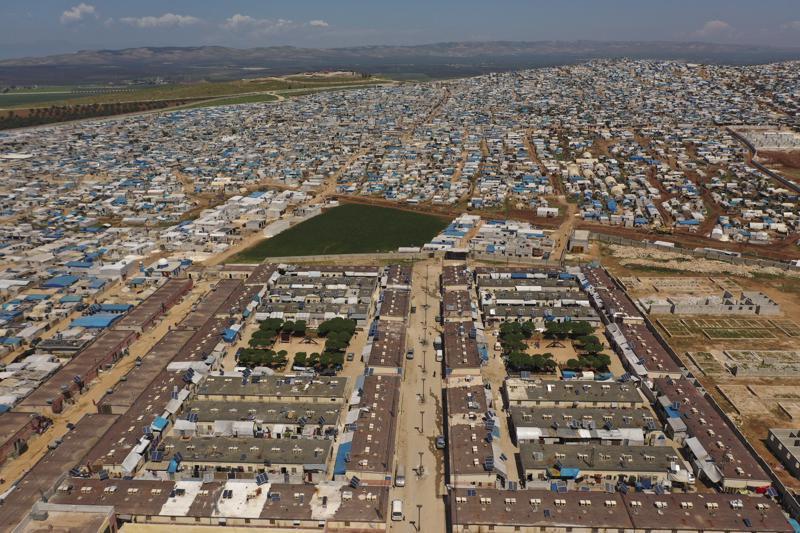
On July 10, the cross-border humanitarian aid operations from Turkey to northwest Syria will expire, and a new United Nations Security Council vote will take place, deciding on the critical lifeline for around 4 million people reliant on cross-border assistance to meet their basic needs. In a collective voice, all humanitarians have been calling for the renewal of the decision, but the fate of millions in need stands as a divided agenda on the table of the U.N. Security Council.
In the wake of the COVID-19 pandemic, where millions of people globally are in need of urgent assistance, shutting the cross-border humanitarian operations will have devastating consequences with a heavy human toll. The Turkish Red Crescent (TRC), which is one of the humanitarian organizations providing large-scale assistance in the region, has been standing with the people in need in Syria since the onset of the humanitarian crises for providing protection and support to vulnerable communities.
The history of the humanitarian aid crossing into Syria from Turkey precedes the U.N. Security Council resolution and depicts a story of sharing, kindness and solidarity. The TRC was the first to respond in 2011 when the first group of Syrians sought asylum at the Idleb-Hatay border. The memories shine bright of Turkish citizens sending aid across the border to help those appealing for support in Syria.
We were also there when the first U.N. humanitarian trucks crossed into Syria, giving a sigh of relief that support was coming. It has now been a decade since the tragedy in Syria, but people are still suffering and in need of assistance. In the coming days, the decision of the U.N. Security Council will either be to exacerbate the suffering and pain of millions of people or will act to ensure that humanitarian aid reaches those millions of people in Syria.
With the adoption of the U.N. Security Council resolution 2165 in 2014, operational involvement of the U.N. agencies and efforts in the cross-border humanitarian response brought a positive environment, which continues with large-scale support. Now, thanks to the efforts of the various humanitarian organizations, a principled and coordinated humanitarian response is in place.
For over a decade now, NGOs from Syria and Turkey have joined hands with international organizations, U.N. agencies and donors to provide for and protect millions of people. Tens of thousands of trucks over the years have not only brought aid to vulnerable communities but also brought hope that they are not forgotten and that a better future is possible.
Today, it is deeply saddening and tragic to see that humanitarians are dealing with threats in terms of delivering aid to people in dire need. This reminds the humanitarian community of how vulnerable our work is, which is decided by the show of hands where one vote can imminently have consequences on millions of people. The politicized nature of the cross-border issues creates an extra layer of stress on humanitarian organizations working in northwest Syria. Having to consider every six months or one year whether cross-border aid will continue has negative concerns on humanitarians’ response and planning. Humanitarians working to provide for the most vulnerable should not be pressed with such issues other than how to best deliver the aid. The international community urgently needs to come to a consensus, which includes enabling humanitarian aid to people in need in Syria from the most direct routes.
Reaching such a consensus requires de-politicization of aid. We have to recognize that Syrians have been left to cope with a decade-long human catastrophe and this is not the time for the international community to turn its back on the millions in need. As always, TRC stands by the people in need in Syria and will continue to deliver services and aid in hopes that the international community and the U.N. Security Council will put human life before political interests. The future of millions will be in the hands of the council, and with the severe effects of COVID-19, closing cross-border aid delivery will go down in the pages of history as a tragic and shameful moment.
However, it is still the strong hope of all humanitarians that leaders will put humanity first and respect for human life and dignity will prevail.
*Dr. Kerem Kınık is the president of the Turkish Red Crescent and vice president of the International Federation of Red Cross and Red Crescent Societies.